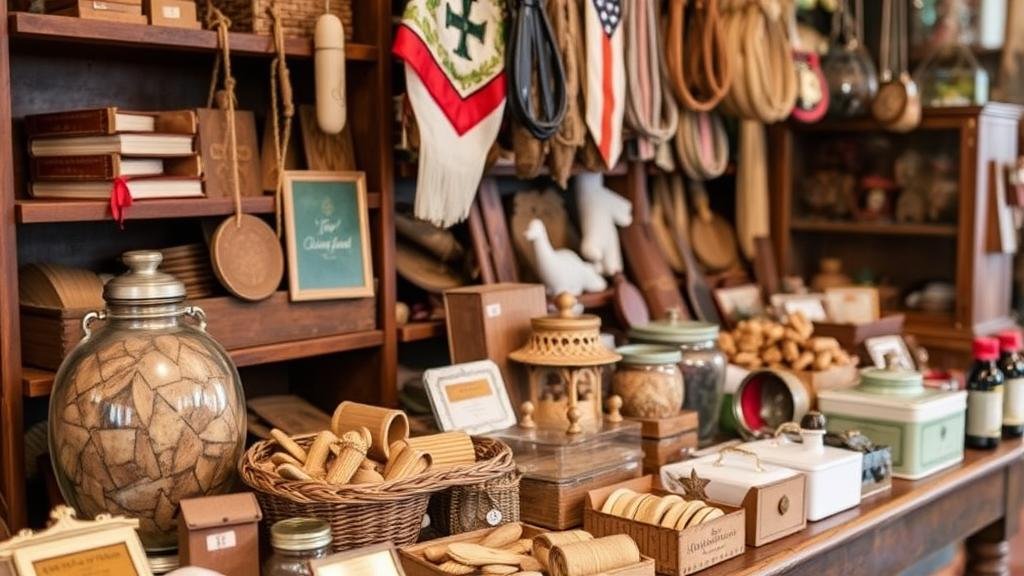Partnering With Historical Societies to Sell Locally Relevant Finds
Partnering With Historical Societies to Sell Locally Relevant Finds
The intersection of archaeology, commerce, and community engagement has created a unique space for businesses and historical societies to collaborate. Partnering with historical societies not only provides an avenue to sell locally relevant finds but also fosters cultural heritage and community involvement. This article explores the benefits, strategies, and practical considerations of such partnerships, highlighting real-world applications and case studies.
The Importance of Local Relevance
Local relevance in historical finds is paramount for both cultural preservation and economic engagement. Items of historical significance often resonate deeply with community members, offering a sense of identity and continuity. For example, communities in New England have experienced a revival of local tourism through the promotion of historical artifacts that tell the story of their region, such as colonial-era tools and indigenous crafts.
Benefits of Partnering with Historical Societies
Engaging with historical societies can yield a range of benefits for both parties involved. These include:
- Cultural Preservation: Companies can contribute to the conservation of local history by supporting historical societies in their missions.
- Community Engagement: Collaborations can foster a greater sense of community pride and awareness about local history.
- Market Differentiation: Businesses can set themselves apart by offering unique, locally sourced products that appeal to both residents and tourists.
- Educational Opportunities: Joint events can serve as platforms for teaching local history, benefiting both the community and the business.
Building a Successful Partnership
Forming a successful partnership with historical societies requires a strategic approach. Here are key steps that businesses should consider:
- Identify Common Goals: Businesses and historical societies should start by determining shared objectives. For example, if a local brewery aims to host historical tours, collaborating with a historical society can enhance the narrative and attract more visitors.
- Leverage Resources: Historical societies often possess extensive archives and resources that businesses can utilize. For example, a local artisan selling handcrafted jewelry can research and source designs that reflect the areas historical aesthetics.
- Create Collaborative Events: Joint events such as exhibitions, lectures, or fairs can drive traffic and generate sales, as seen in a partnership between the California Historical Society and local artists.
- Develop Marketing Strategies: Joint marketing campaigns can leverage the credibility of historical societies to promote local finds. Utilizing social media platforms to share stories behind each artifact can attract attention and enhance sales.
Case Studies: Successful Partnerships
Several businesses have successfully partnered with historical societies to create mutually beneficial outcomes:
- The Historic New Orleans Collection (HNOC): This society collaborated with local artisans to offer replicas of historic artifacts. As a result, they not only supported local craftsmanship but also generated funds for preservation efforts.
- Santa Fes Museum of Indian Arts and Culture: This institution partnered with local artists to showcase traditional techniques. The initiatives led to increased foot traffic and heightened sales for both the museum and participating artisans.
Challenges and Considerations
While partnerships can be fruitful, they may also come with certain challenges. It is essential to address these proactively:
- Balancing Commercial and Educational Goals: Striking the right balance between profit-making and educational outreach is vital. Both parties must clearly articulate their mission and ensure alignment.
- Intellectual Property Concerns: Historical artifacts may be subject to copyright or ownership issues. It is crucial to clarify these aspects to prevent legal complications.
Actionable Takeaways
For businesses looking to partner with historical societies, here are some actionable takeaways:
- Conduct thorough research to identify historical societies that align with your business values and objectives.
- Engage in open dialogues with society representatives to explore potential synergies.
- Design joint programs promoting educational engagement, which can ultimately lead to increased customer loyalty.
- Evaluate successful case studies and model your approach accordingly, adapting strategies to fit your local context.
To wrap up, partnering with historical societies to sell locally relevant finds is a strategy that can enhance both cultural appreciation and economic viability. By fostering collaboration, businesses can not only drive sales but also play a pivotal role in preserving local history, creating a lasting impact on their communities.



